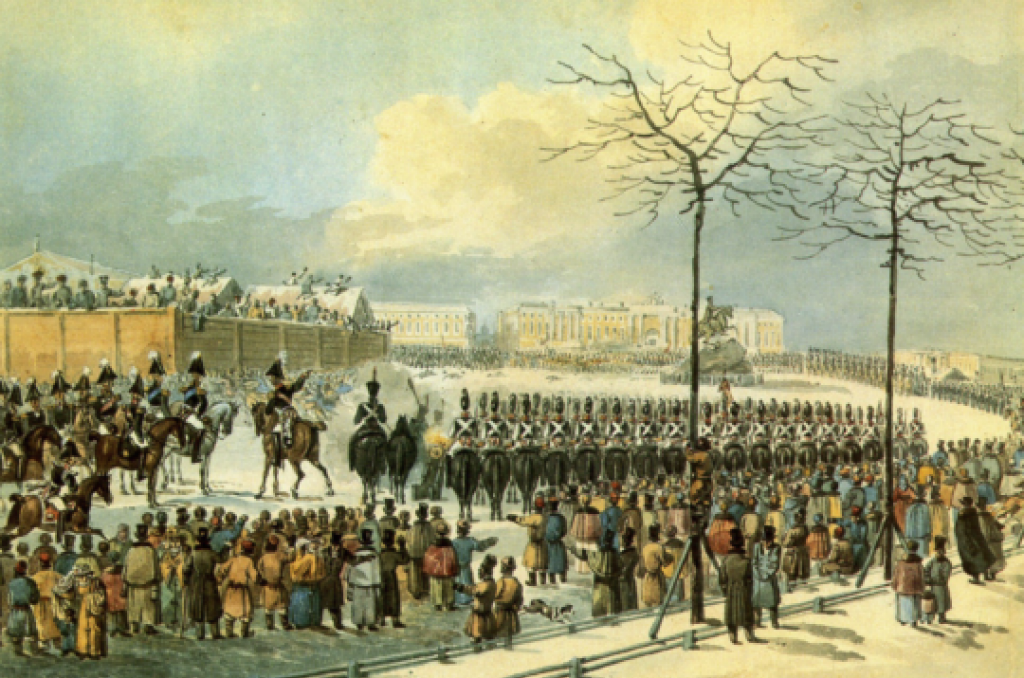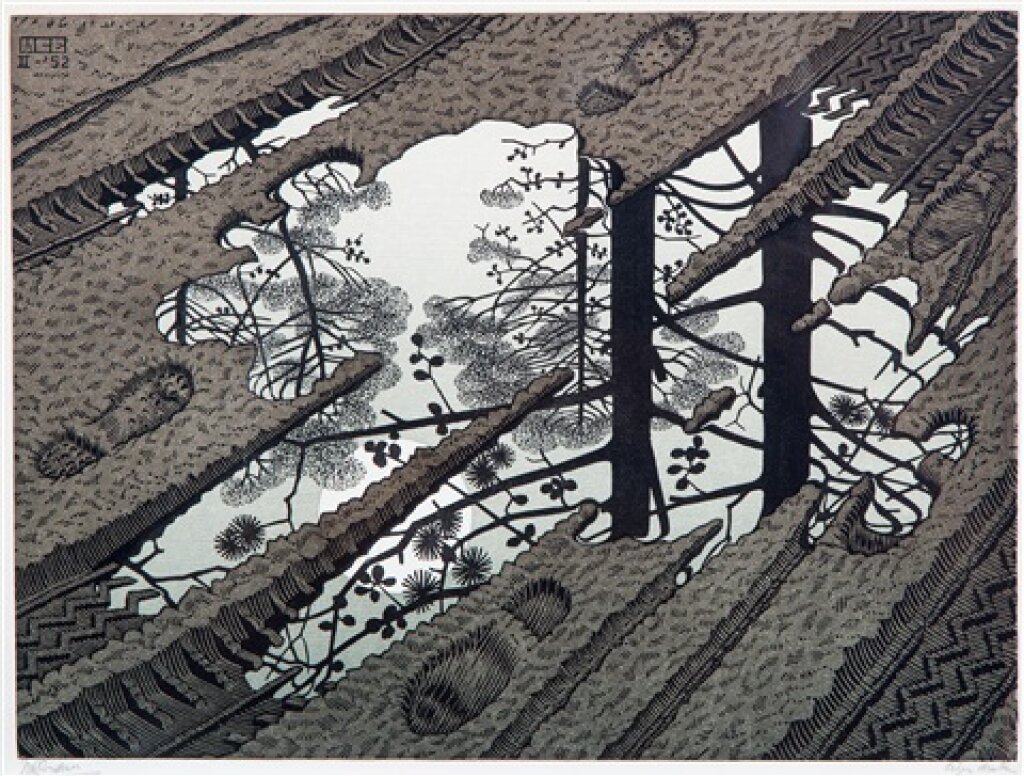Emily Wang is Assistant Professor of Russian at the University of Notre Dame and the author of Pushkin, the Decembrists, and Civic Sentimentalism (University of Wisconsin Press, 2023).
Above: Karl Kollmann, “On the Senate Square” (1826-7) Source
Alexander Pushkin found himself in trouble after the desperate attempt of a group of liberal officers, nobles, and thinkers—now remembered as “The Decembrists”—to prevent Nicholas I from assuming the throne on 14 December 1825. These men were members of a secret society that had been planning for years to turn autocratic Russia into a modern constitutional state with rights for everyone, including serfs. Although Pushkin had already been exiled for six years, many suspected that his liberal lyrics had inspired the rebels. Mikhail Bestuzhev, Matvei Murav’iev-Apostol, Mikahil Bestuzhev-Riumin, and Ivan Pushchin all referred to his poetry in their accounts of the uprising. As Pushkin’s mentor, Vasily Zhukovsky, told him: “You weren’t mixed up in anything—that’s true. But the papers of everyone who participated contain your poems.”
Why did verse play a role in this failed revolution? And why were Pushkin’s early liberal works so effective when, as later scholars have demonstrated, his words, as such, were not entirely radical?
The answer to this question lies in the Russian Formalist concept of the “signal word.” Viktor Goffman, Grigory Gukovsky, and Lydia Ginzburg argue that liberal poetry worked the same way as elegies: through emotional association. The presence of certain words—like vol’nost’, or liberty, tsepi, or chains, grazhdanin, or citizen, and kinzhal, or dagger—automatically signaled to the reader that a text belonged to a certain genre. Stringing several of these words together immediately conveyed that a poem was “liberal.”
This kind of automatic genre recognition extends beyond the realm of nineteenth-century Russian poetry. When we flip through channels on the TV, we can recognize a romantic comedy or a horror movie almost instantly thanks to cues from the soundtrack and the staging. Or, when we scan social media, slogans like “Black Lives Matter” or “Love Them Both” can alert us to a text’s political orientation before we have read the entire thing. Through its effective use of language that went on to become a hallmark of its genre, Pushkin’s political verse helped shape a subgenre of civic poetry and was subsequently interpreted in the context of this broader corpus and its increasingly radical opposition to the state.
Scholars in other disciplines tell us that using political language can shape our own emotions and attitudes. Historian William Reddy’s notion of the “emotive” explains why telling someone we love them or hate them can make us feel these emotions more. And recently, a group of political scientistsstudying social media showed
that, while online political statements do little to change others’ political opinions (a Trump voter will not switch to Biden after seeing a cousin’s Facebook post), they can strengthen the poster’s own convictions (the cousin making the post might donate to Biden, or become more likely to defend him to others after publicly declaring her affiliation). Saying that you are concerned about climate change may actually make you think about the issue more. As Reddy’s “emotives” guide our feelings, so public utterances shape our political beliefs. Thus, according to this framework, virtue signaling has an unexpectedly salient political effect.
Turning back to the Decembrists, political poetry served as a similar kind of formative speech. Pushkin wrote lyrics like “Liberty” (~1817), “The Dagger” (~1821), and “The Village” (1819) but we know that countless others memorized, recited, and copied out these texts. As I describe in my book, Pushkin, Decembrists, and Civic Sentimentalism, Decembrist poets inspired by these works and Pushkin’s “Southern Poems” (1820-1824) created new subgenres of liberal civic poetry. These works helped strengthen the convictions of the secret society members who would later attempt to reshape the state. Although the Decembrists failed to institute a republic, or even a constitutional monarchy, their attempted revolution would leave its mark on Russian culture and haunt the increasingly conservative Pushkin for the rest of his life.



